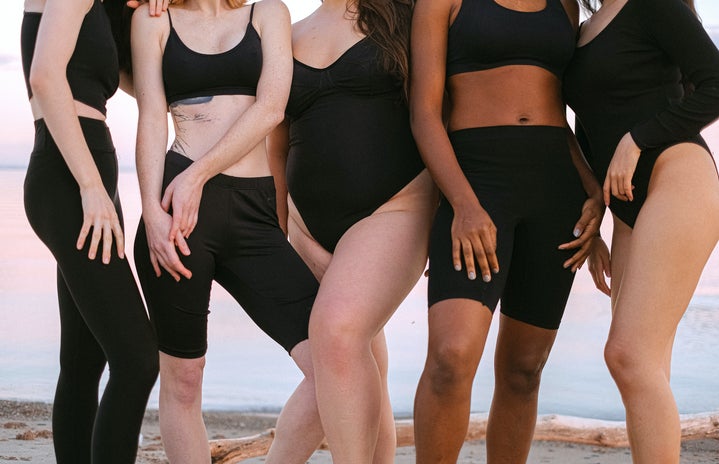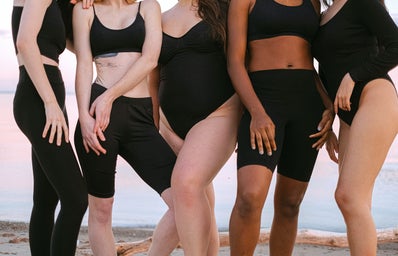Whether you’ve been keeping up with the Kardashians or not, you might have heard of or seen the unedited bikini picture of Khloe Kardashian circulating the Internet earlier this month. The picture, initially posted by Khloe’s 86-year-old grandma, depicted the reality show star in a bikini looking healthy and natural, contrary to the unrealistic, photoshopped body type many of her fans know of her to have. Unhappy with the unauthorized post, Khloe and her team worked hard to have the photo permanently removed from the Internet, threatening to take legal action on anyone who reposted the picture on social media.
Khloe later posted to her Instagram, flaunting her “true” body in a series of videos, as well as a response to the backlash and body image pressures she has been struggling with, both past and present.
Taking into account that Khloe has been in the spotlight not only as a reality show star, but as a social media influencer and model, it’s understandable for her to feel pressured to adhere to the beauty standards of the system that perpetuates her success. Prior to the Kardashians’ popularity, the media has already constantly surveilled women’s bodies — critiquing, objectifying, and praising a small portion of body types as “attractive” — for many decades. Nobody should be subjected to so much criticism, famous or not.
Yet, it is noteworthy that the Kardashians themselves also contribute to the unrealistic body standard that the media perpetuates in hopes to vindicate their image and status. Thus, a vicious cycle between the Kardashians and social media emerges: social media bolsters extreme, unrealistic body types, and the Kardashians feel the need to uphold this image by altering their bodies – whether it be physically or digitally – to maintain such body type, social media puts the spotlight on them, and so on and so forth. Eventually, this “perfect” body image becomes normalized as the “attractive” or “acceptable,” not only on social media, but in many women’s minds.
Truthfully, it is sad that Khloe could not bear having an unedited picture of her on the Internet, especially considering that in the photo, her body does not adhere to an unattainable body standard. Moreover, the act of taking down this specific photo further perpetuates and normalizes the “perfect” body, neglecting natural body types altogether and further asserting that an ordinary body type is unacceptable. As the founder of Good American, a body positive clothing brand, what does this say about her advocacy for the campaign, and the posts of her edited, filtered body wearing the clothing?
With a whopping 137 million followers on Instagram, it is undeniable that Khloe has a large outreach and audience. With social media influencing much of how we think of ourselves, it’s easy for many of Kardashians’ followers to compare themselves to the unrealistic body standards that the Kardashians propagate with their posts. This could enhance symptoms of Body Dysmorphic Disorder (BDD). As such, women are led to notice impractical imperfections that they would never have noticed if it weren’t for the posts they constantly see on social media. Many feel as though their body isn’t acceptable, or even normal, since their body type isn’t represented or showcased to the same extent as the Kardashians online. Naturally, women might feel obligated to edit their own pictures to adhere to this unrealistic body standard, further spreading the image of the “perfect” body type to their followers. In the same way one can view their social media profiles as extensions of themselves, one can also associate their image on the Internet with appearance in real life, potentially leading to unhappiness with one’s real-life self, thus enhancing one’s BDD.
Although I cannot add Khloe’s unedited picture in this article (her legal team has copyrighted it), I believe it is important for many women, especially young girls, to see it. It shows that what we see online is not always reality; the majority of what we see on social media is the result of high beauty standards being placed on a pedestal. It shows us that even the largest celebrities, such as Khloe Kardashian, have human-like, attainable bodies. It’s time for the media to place normal, healthy bodies in the spotlight — something the Kardashians will have to keep up with.


